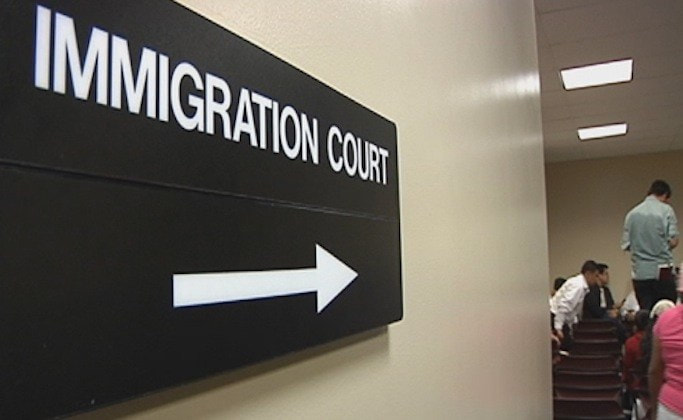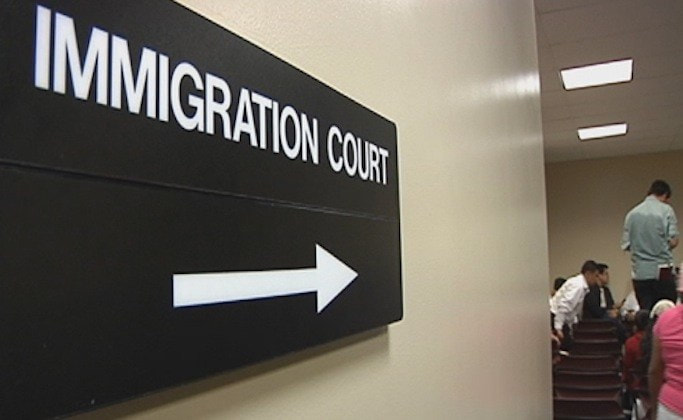
New policy will make it easier for a former conditional resident, whose status was terminated by USCIS, to reapply for adjustment of status under another petition or eligibility basis without having to go through Immigration Court removal proceedings. USCIS will consider the date of admission to be the date USCIS approved the subsequent (second) adjustment application. Time spent in the prior terminated conditional resident status does not count toward the residency requirement for naturalization purposes. The clock will restart after second adjustment.
U.S. Citizenship and Immigration Services (USCIS) is issuing policy guidance in the USCIS Policy Manual to update and clarify when USCIS may adjust the status of an applicant whose conditional permanent resident (CPR) status was terminated. Background Sections 245(d) and 245(f) of the Immigration and Nationality Act (INA) bar an alien lawfully admitted to the United States for permanent residence on a conditional basis from adjusting status under INA 245(a).
However, in Matter of Stockwell, the Board of Immigration Appeals held that INA 245(d) does not prohibit an alien whose CPR status had been terminated from adjusting his or her status under INA 245(a).
USCIS is updating its guidance to ensure consistent adjudication of Application to Register Permanent Residence or Adjust Status (Form I-485) filed by applicants whose CPR status was terminated.
The guidance contained in Volume 7, Part B of the Policy Manual, replaces guidance found in Chapter 25.1(d) of the Adjudicator’s Field Manual. The guidance contained in the Policy Manual is controlling and supersedes any related prior USCIS guidance.
This policy is effective on November 21, 2019, and only applies to adjustment applications received on or after that date.
New Policy Highlights
• Explains how USCIS applies Matter of Stockwell and clarifies when USCIS may adjust the status of an alien whose CPR status was terminated in certain circumstances.
• Clarifies that the time an alien spent in prior CPR status does not count towards his or her residency requirement for naturalization purposes.
In general, an alien granted lawful permanent resident status on a conditional basis[20] is ineligible to adjust status on a new basis under the provisions of INA 245(a).[21] Instead, conditional permanent residents (CPRs) must generally comply with the requirements of INA 216 or 216A to remove the conditions on their lawful permanent resident status.[22]
This bar to adjustment, however, only applies to an alien in the United States in lawful CPR status. In Matter of Stockwell (PDF),[23] the Board of Immigration Appeals adopted a narrow interpretation of the regulation implementing this adjustment bar,[24] stating that the bar no longer applies if USCIS terminates the alien’s CPR status.[25]
USCIS can terminate CPR status for reasons specified in INA 216 or INA 216A. [26] Although the immigration judge may review the termination in removal proceedings, the bar no longer applies upon USCIS terminating the CPR status; it is not necessary that an immigration judge have affirmed USCIS’ decision to terminate the alien’s CPR status before the alien may file a new adjustment application.
Therefore, under INA 245(a), USCIS may adjust the status an alien whose CPR status was previously terminated, if:[27]
- The alien has a new basis for adjustment;
- The alien is otherwise eligible to adjust;[28] and
- USCIS has jurisdiction over the adjustment application.[29]
An alien seeking to adjust status again who was admitted as a fiancé(e) (K nonimmigrant) may only re-adjust based on an approved Petition for Alien Relative (Form I-130) filed by the same U.S. citizen who filed the Petition for Alien Fiancé(e) (Form I-129F) on his or her behalf.[30]
The alien must also be otherwise eligible to adjust status including not being inadmissible or barred by INA 245(c).
If the alien successfully adjusts status on a new basis, USCIS generally considers the date of admission to be the date USCIS approved the subsequent adjustment application.[31] Time spent in the prior CPR status does not count toward the residency requirement for naturalization purposes.[32]
More here.













 RSS Feed
RSS Feed